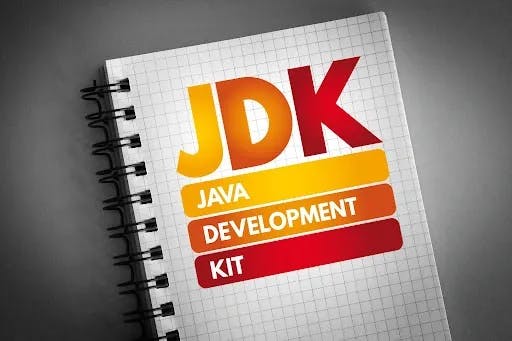Leverage Turing Intelligence capabilities to integrate AI into your operations, enhance automation, and optimize cloud migration for scalable impact.
Advance foundation model research and improve LLM reasoning, coding, and multimodal capabilities with Turing AGI Advancement.
Access a global network of elite AI professionals through Turing Jobs—vetted experts ready to accelerate your AI initiatives.
FOR DEVELOPERS
A complete guide on JDK18 - the latest version of Java

Java has been rapidly evolving since its inception. The latest version of Java - Java 18is all set to make your life as a developer easier. Traditionally, Java released new versions every 2 years. These new features used to overtake all the existing and popular languages of that time. Since 2014, Java has seen continuous upgrades on an upward trajectory.
Oracle released Java 18 to the masses in March 2022. Contrary to the Java 17 release, Java 18 is not a long-term support update. JDK18 is an incremental update with only 6 months of support. The current version of Java - Java 18 has updates for code libraries & tools.
Let's get started with the latest updates about Java 18 that will help you land the best Java developer jobs!
Table of Contents
- 1. Newest Version of Java - Improvements & More
- 1.1. Pattern Matching for Switch
- 1.2. Improvements to Javac Compiler
- 1.3. Expand Checks of Javac’s Serial Lint Warning in the newest version of Java
- 1.4. Code Snippets in Java API Documentation
- 1.5. String Deduplication
- 1.6. Finalization Deprecated for Removal
- 1.7. Internet-Address Resolution SPI
- 1.8. Simple Web Server
- 2. Conclusion
Newest Version of Java - Improvements & More
Java 18 builds a stronger community daily with new updates and releases. Here is a list of all the features of the new Java 18.
Pattern Matching for Switch
The pattern matching for the switch feature of Java 18 has been again released for its second preview. There are not any major changes from the first preview. It is all set to become a standard feature in Java 19. The changes from the first preview are only regarding improved exhaustiveness check and other clarification & checks concerning dominance checks.
Improvements to Javac Compiler
Javac Compiler has also observed several improvements in Java 18. It aims to minimize unintentional memory leaks, usually due to inner classes. Developers are not always aware that the instances of an internal class have an implicit reference to the example of the enclosing class. This access is not always used and leads to memory leaks.
Expand Checks of Javac’s Serial Lint Warning in the newest version of Java
The checking mechanism in Java 18 has improved significantly. Now, Javac’s lint warnings have been expanded with serialization warnings. Along with checking for the existence of the serialVersionUID field, it also performs checks. Like other warning suppressors, the serial lint warnings can also be suppressed with @SuppressWarnings(“serial”).
Code Snippets in Java API Documentation
The java compiler has also seen significant improvements. In the Java 18 update, better support has been provided for code snippets as part of the documentation. This is part of the JEP 413 that includes support for syntax highlights. The new feature also allows IDEs and other tools to efficiently differentiate code snippets while documenting. This helps in providing linting while editing, code insights, and highlights.
String Deduplication
Java 8 was the first update that included String deduplication as a G1 garbage collector feature. The feature automatically identifies identical strings and deduplicates them. This ensures a better memory footprint. However, in Java 8, this feature was only extended to OpenJDK. With the new Java 18, this feature will also extend to ParallelGC, ZGC, and SerialGC.
Finalization Deprecated for Removal
The latest Java 18 promoted the removal of finalization (JEP421). Finalization enables a callback invoked when any object is being treated and collected as garbage and has many issues. Removal of finalization will minimize garbage collection impact and will have a positive impact on potential performance.
Internet-Address Resolution SPI
Controlling the internet address resolution is an exciting and much-needed feature of Java 18. This feature would allow the developer to register a ServiceProvider that will be responsible for handling hostname to IP resolutions. A perfect use case for this feature is unit testing. The improved control on caching would ensure that a hostname within a JVM instance’s lifetime is resolved to different IPs.
Simple Web Server
The use of HTTP servers in Java has continued for a very long time. But, this tends to be complicated and provides dynamic resolution. Now, in the latest version of Java - Java 18 as part of JEP 408, a new, much simpler version of the web server has been introduced. The new version will facilitate testing, ad-hoc development, etc.
That’s it about the latest version of Java 18. Hope this will help you in remote Java developer job interviews. Let’s summarize now!
Conclusion
Even though Java 18 is not a long-term support update, it has a bunch of cool features which will make your development journey smoother. The incremental feature releases ensure that Oracle hands the users real-time changes and allows the developers to get a hands-on experience with the features. Many of these new features and tools will make it to the LTS update, which will be Java 19.
Frequently Asked Questions

Press

Blog
